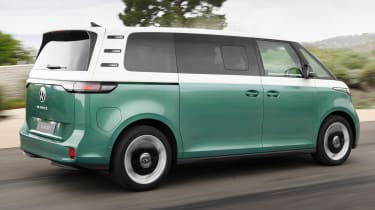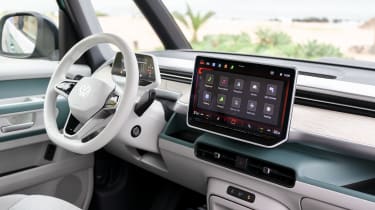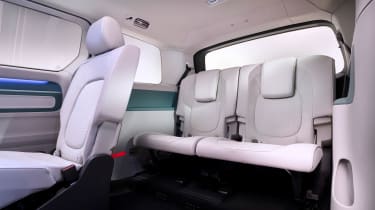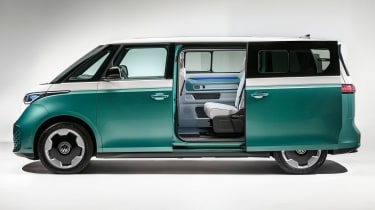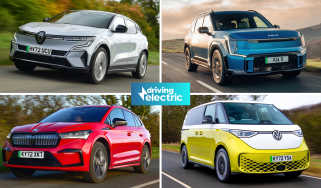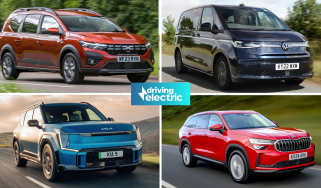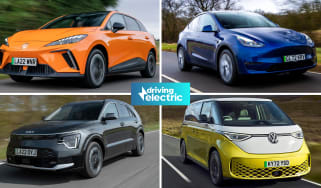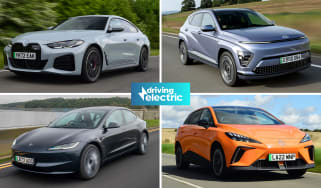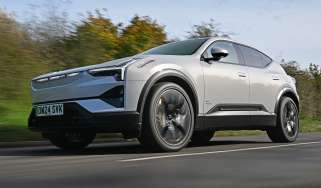Volkswagen ID. Buzz LWB is a retro, seven-seat electric MPV
Volkswagen has unveiled a larger version of its ID. Buzz EV, boasting more seats and a larger battery with more range
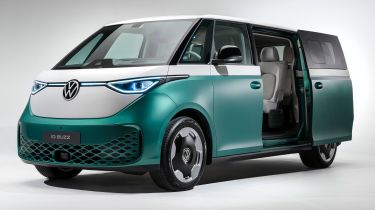
A seven-seater version of the Volkswagen ID. Buzz has been unveiled, almost a year after the launch of the five-seat model and its Cargo panel van counterpart.
Dubbed the Volkswagen ID. Buzz LWB, this new version joins a growing number of electric seven-seaters, which currently range from the likes of the Citroen e-Berlingo all the way to the Tesla Model X.
Pricing is yet to be confirmed, but you can expect the larger LWB model to incur a sizeable uplift over the standard ID. Buzz’s £58,135 starting price. Volkswagen says the ID. Buzz LWB will go on sale in Europe in 2024, likely spearheaded by an all-bells-and-whistles ‘1st Edition’ model.
In case you weren’t aware, LWB stands for ‘Long Wheelbase’ – the distance between the front and rear wheels of a vehicle. For the LWB model, this measurement has grown by 250mm for a total vehicle length of 4,962mm.
This extra space allows for three different seat configurations: customers can order a five-seater variant with a massive boot, a six-seater with captain’s chairs in the middle row and a seven-seater with a traditional three-person bench seat in the centre.
Volkswagen ID. Buzz LWB: battery, range & performance
Despite its extra length, the ID. Buzz LWB shares its MEB underpinnings with the regular ID. Buzz, as well as the Audi Q4 e-tron and Skoda Enyaq iV, plus the forthcoming Ford Explorer and Cupra Tavascan.
Another benefit of having a larger footprint is the ability to fit a larger battery; as standard, the LWB gets the same 77kWh battery as the normal ID. Buzz. However, customers can also step up to a beefier 82kWh battery which, according to Volkswagen, “creates an even longer range” – boosting the standard Buzz’s 258-mile maximum to (we expect) around 300 miles.
Opting for the larger battery also nets you a more powerful 285bhp electric motor, which can propel the electric passenger van from 0-62mph in 7.9 seconds; models specified with the 77kWh battery get a less-powerful 201bhp for a 0-62mph time of 10.2 seconds.
Though unconfirmed, cheaper ‘Pure’ versions of the standard ID. Buzz are expected to come later down the line, and will probably feature either a 45 or 58kWh battery for a range close to 200 miles. On the other end of the spectrum, a high-performance GTX version with as much as 335bhp and a 0-62mph time of 6.4 seconds is coming soon, too, with the brand teasing the upcoming four-wheel-drive performance MPV at a conference in Germany last year.
Rapid charging is supported at speeds up to 170kW, which should allow customers to top up the 77kWh battery from 5-80% capacity in close to 30 minutes from a fast enough public charger. Fully recharging the battery from a standard 7.4kW home wallbox is likely to take over 12 hours.
Interior and technology
The ID. Buzz’s closeness to the ID.3 and ID.4 is clear when you take a look at the cabin. It features the same touch-sensitive climate controls and steering-wheel buttons as those cars. You also get a 5.3-inch digital driver’s display and 10-inch central infotainment touchscreen as standard, as well as Apple CarPlay and Android Auto (optional on the Cargo). Volkswagen says the ID. Buzz LWB will be offered with a larger 12.4-inch infotainment display – previously only available on the limited-run 1st Edition model – as well as a head-up display, too.
VW has also fitted an evolution of its column-mounted twist-and-go gear selector, along with a litany of USB-C charging ports and storage areas around the cabin, plus a compartment below the infotainment screen with two cupholders. The MPV model also gets ambient lighting and the interactive ID.Light across the dash, which changes colour in certain situations, turning red when warning of a possible hazard, for example.
One thing you won’t find in the ID. Buzz is leather, as VW has chosen to use several recycled or vegan materials for the upholstery and other components. One of these, called Seaqual yarn, consists of 10% collected ocean plastics and roughly 90% recycled plastic bottles. The higher-spec Style (as well as the now-discontinued 1st Edition) comes with bright two-colour schemes to help set it apart from the entry-level car.
The ID. Buzz also gets an array of driver-assistance technology and can be equipped with the latest version of the brand’s ‘Travel Assist’ semi-autonomous system. In fact, top-spec versions of the ID. Buzz feature more than 30 such systems and can receive over-the-air (OTA) software updates from VW as well.
Equipment, trim levels, options and prices
As mentioned, pricing for the LWB model has not been announced, but the standard five-seater Volkswagen ID. Buzz electric minibus is already on sale from £58,915, with the ID. Buzz Cargo van starting from £46,621.
The five-seat ID. Buzz passenger model is available in Life and Style specifications – a lineup that’ll likely be mirrored by the LWB variant when it arrives next year. The ID. Buzz Cargo comes in Commerce and Commerce Plus trims.
Standard kit on the ID. Buzz Life (£58,915) includes LED headlights, 19-inch alloy wheels, sliding rear doors, a 40:60 split-folding rear bench, armrests for the front seats, a 5.3-inch digital driver’s display, a 10-inch touchscreen, smartphone connectivity, keyless start, reversing camera, traffic-sign recognition, adaptive cruise control and autonomous emergency braking (AEB), among other safety systems.
Upgrading to Style (£63,715) adds 20-inch alloys, ambient lighting, stainless steel 'Play' and 'Pause' pedals, a powered tailgate, matrix LED headlights and two-tone cloth upholstery.
Customers also get a choice of four two-tone paint finishes for £2,790, which combine a Candy White roof and V-shaped bonnet with either Lime Yellow, Starlight Blue, Energetic Orange or Bay Leaf Green for the rest of the bodywork.
Prices for the ID. Buzz Cargo start from £48,421 (£40,360 excluding VAT). Entry-level ID. Buzz Cargo Commerce models come with LED daytime running lights, front and rear parking sensors and the same 10-inch touchscreen with Apple CarPlay and Android Auto found on cheaper versions of the minibus. Three seats are standard, with a heated driver’s seat.
Commerce Plus starts from £53,521 (£44,610 excluding VAT) and comes with a heated windscreen, keyless entry, and sat-nav for the 10-inch screen. That screen also features a reversing camera, and every Commerce Plus model features safety kit such as Adaptive Cruise Control, Lane Assist, Side Assist and Travel Assist.
Both versions of the Cargo van get a 3.9 cubic metre load area, plus a partition with a fixed window and load-through hatch. The Buzz can also tow up to 1,000kg using the optional tow bar. You get one sliding door as standard, but a second – on the driver’s side – can be specified as an optional extra.
Recommended
Most Popular
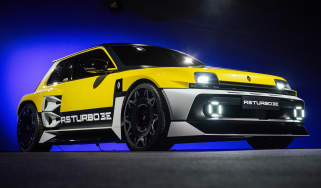
Renault 5 Turbo 3E: 533bhp electric rally homage hits the road in 2027

